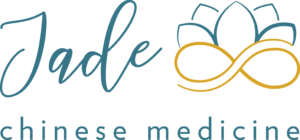Our thoughts and feelings have somatic – physiological – expression.
The Chinese mapped this somatic expression, 3000 years ago. They also discovered which organs are affected by different emotions. Acupuncture points on channels are regarded as a path to access these in a direct and physical way. Within a Chinese Medicine framework, an emotion is natural, healthy and positive (yes, even the ‘bad’ or difficult ones) with their own unique offering of insight and the possibility of wisdom.
Eastern Medical traditions view emotions as a potential cause of illness, as well as an outcome. Eastern medicine regards any pathology as part of an overall pattern of disharmony and imbalance, and links emotions, experience and organ pathologies together. This may, and often does, mean that we observe and treat physical, emotional, and energetic aspects attributed to a disorder together, at the same time. One aspect might be treated but another will also improve. This will often be reflected by symptoms (and shifts) across the mind and body simultaneously.
No emotion is either positive or negative as such – they are simply present, as a natural and inevitable part of the human condition.
Every human being alive will experience grief, shock, anger, sadness, worry…. At some stage of life, in the same way that every human will experience joy, humour, gratitude, and happiness. All of these experiences are unavoidable, for every single one of us. They are part of the human existence.
However, there becomes a time when any of us can become stuck in an emotion and find it difficult to move out from that. We want to, but we cant. This is the stage at which an emotion becomes a pathology. The Latin root word of emotion is mot. In the same way we say motion, meaning, to move. Inward or outward, but a shift of some kind is the fundamental foundation. Not to ignore. Not to avoid. Not to deny. your emotion is present for a reason and its not going to just go away until a change has occurred one way or another.
Emotional flexibility is essential for transition and growth. It can lead to physical and mental ill health. Any emotion can be useful if you can move with and through it. The momentum which can occur through surrender can be an amazing, challenging and terrifying experience.
These connections, studied and acknowledged in Eastern cultures thousands of years ago, gave form to their medical traditions and are intrinsically rooted in their practice. Some of these medical traditions you likely know, either by your own experience or by reputation, although you might not realise thats what they are. They include techniques and tools for the body and mind together, and include meditation (rebranded as ‘mindfulness’), yoga, tai chi, massage, and Acupuncture. This is why spontaneous – sometimes surprising – emotional release can occur after these practices.
Connection back to yourself is the way to facilitate deeper change.
Especially in unpleasant experiences, your body can be an unwelcome place to be in: your mind can feel like a foreign territory. What Oriental Medicine and Acupuncture offers is the opportunity and reminder that your body and mind can be a safe place. It can assist you to facilitate that change, in a nourishing and secure environment.
Fundamentally: it offers a chance to stop and to listen. Because the more you attempt to ignore your internal voice telling you something you don’t want to hear: the louder it’s going to shout to get your attention.
Photo by Evan Krause on Unsplash



